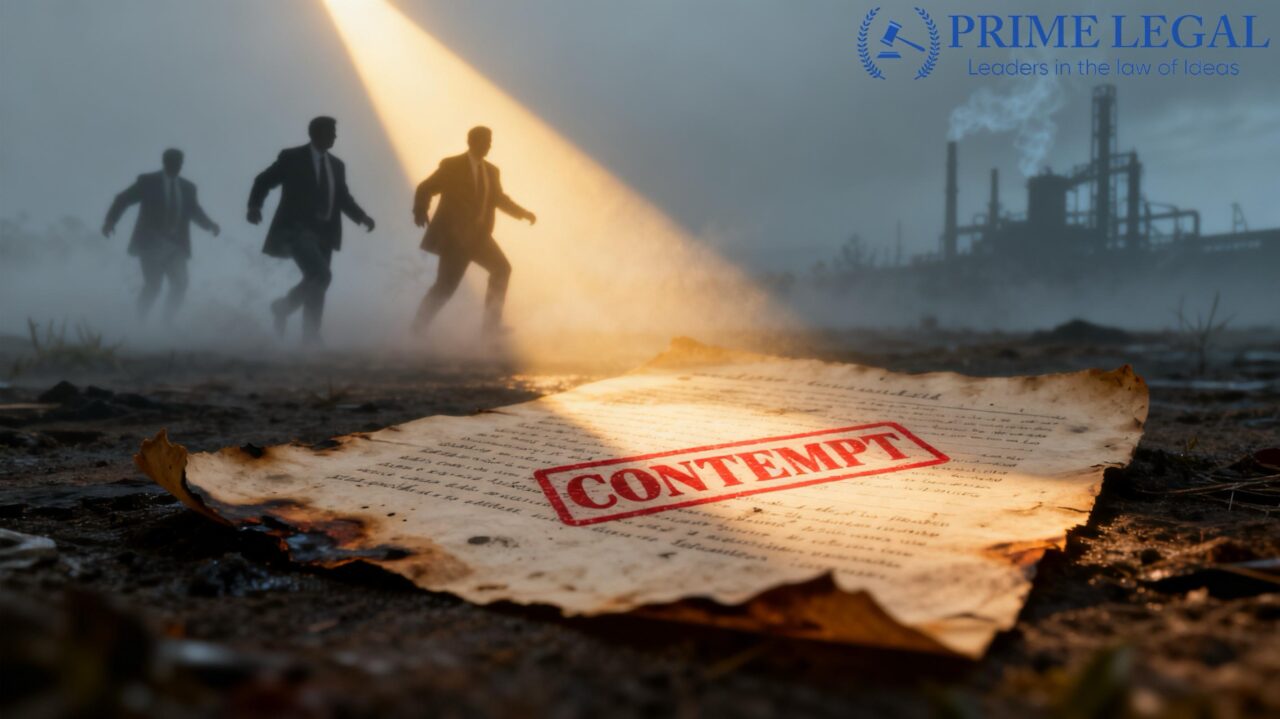Introduction
The Supreme Court of India has recently served contempt notices to senior officials from the state and central governments for their non-compliance with commands given in 2012 for the health and wellbeing of survivors of the Bhopal Gas Tragedy. Petitioners claimed that there had been “almost total non-compliance” in relation to the Court’s clear order on medical record computerization, effective treatment protocols, and adequate staffing of hospitals, over a decade ago. The apex court’s extraordinary step indicates judicial worry that prolonged inaction by the administration has compromised the effectiveness of its orders and the rights of thousands of survivors.
Background
The origin of the litigation lies in Bhopal Gas Peedith Mahila Udyog Sangathan v. Union of India, AIR 2012 SC 3081, in which the Supreme Court, in an order dated August 9, 2012, issued a bundle of remedial directions to ensure that there was sustained medical care and specialised treatment capacity for all victims and proper record keeping of the victms’ medical histories and computerised medical records in light of the disastrous events of December 1984. The 2012 scheme set out mechanisms to monitor compliance and for reports to be provided at intervals to the Court to assure its implementation.
A Monitoring Committee has been in place since the scheme was first promulgated and has provided reports to the Court over several years recommending actions to be taken. The petitioners state that despite at least twenty-one reports by the committee and continued scrutiny from the Court, the central and state authorities including the health and administration departments, as well as the Bhopal Memorial Hospital & Research Centre administration, have still not meaningfully complied with the 2012 directions -and that this is the basis for the Petition before the court today.
Key Points
- Nature of the 2012 Directions: The 2012 Order established enforceable obligations on public authorities to provide institutional care, conduct ongoing assessments, and maintain computerized records of gas victims to establish a mechanism for the identification, monitoring and long-term consequences.
- Monitoring and Reporting: A Monitoring Committee was judicially appointed and has provided recurring reports (21 reports cited by petitioners) which indicated the need for corrective actions and ongoing bureaucratic inertia.
- Allegations of “Almost Total Non-Compliance”: The petitioners have asserted that more than a decade of the authorities’ inaction has been tantamount to almost total failure to implement the Court’s remedial scheme — this is the essence of the contempt averments.
- Affected Institutions and Officials: Notices have been issued to a number of functionaries including the central health authorities, Chief Secretary of Madhya Pradesh, and officials responsible for Bhopal specific relief administration, all of which reflect the multi-agency nature of compliance.
- Relief Sought in Contempt: The petitioners have sought identifying defaulting officers, immediate remedial compliance (time-bound), costs, and such coercive measures as may be necessary to enforce the 2012 directives.
Recent Developments
On 26–27 September 2025 the Supreme Court noted the contempt petition and issued notices to named officials while listing it for a fuller hearing. (The Court showed an interest in holding authorities accountable with a substantive, time-bound remediation plan.) Published news indicates the petition has been diarised (Diary No. 39365-2025 PIL-W) and a hearing is awaited for further court consideration.
The news also specified multiple implementation gaps: vacant posts not filled at identified medical centres (including BMHRC); a completed implementation of computerised patient records; and no credible patient tracking mechanism or vaccination protocol. The deficits have been said to be consistently flagged by the Monitoring Committee.
Authorities are said to have been afforded an opportunity to respond via affidavits, responding with timelines and action taken or to be done.
Conclusion
It is clear from the Supreme Court’s order to institute contempt proceedings that judicial directions to administrative bodies in public-interest cases cannot simply be ignored. The purpose of contempt jurisdiction is to assist the rule of law in circumstances where administrative decision-makers refuse to take action, and though respondents may offer a variety of practical considerations for noncompliance, they must provide evidence of a bona fide time-limited plan for compliance.
If the Court does not receive some proof of a bona fide time-limited plan for compliance, the likelihood of coercive measures increases, providing relief to Bhopal gas victims, who have waited too long for relief, and reaffirming the enforceability of the Court’s orders.
“PRIME LEGAL is a full-service law firm that has won a National Award and has more than 20 years of experience in an array of sectors and practice areas. Prime legal falls into the category of best law firm, best lawyer, best family lawyer, best divorce lawyer, best divorce law firm, best criminal lawyer, best criminal law firm, best consumer lawyer, best civil lawyer.”
WRITTEN BY Stuti Vineet


